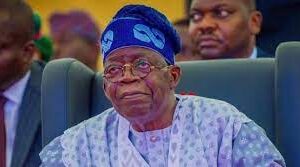The Niger Delta covers 20,000 km within wetlands of 70,000 km formed primarily by sediment deposition. 20 million people and 40 different ethnic groups, this floodplain makes up 7.5% of Nigeria’s total land mass. It is the largest wetland and maintains the third-largest drainage basin in Africa. The Niger Delta environment can be broken down into four ecological zones: coastal barrier islands, mangrove swamp forests, freshwater swamps, and lowland rain forests.
The slow poisoning of the water in this country and the destruction of vegetation and agricultural land by oil spills which occur during petroleum operations. But since the inception of the oil industry in Nigeria, several decades ago, there has been no concerned and effective effort on the part of the government, let alone the oil operators, to control environmental problems associated with the industry.
The Vice President, Prof Yemi Osinbajo, said that, “the years of official neglect and corruption in the Niger Delta region is a thing of the past and that now is the time to prepare for a future of progress and development.”
He said this recently in Gbaramatu Kingdom, Delta state while having interactive engagements with oil-producing communities.
“The Niger Delta that we see today including this great kingdom is an area of poor infrastructure, few schools, few hospitals and a severe pollution, as Niger Delta of today is one of daily pipeline vandalism and In 2014 alone, there were over 3,700 incidents of pipeline vandalism, from January to June 2016, there were over 1,447 incidents of vandalism,” he said
The Niger Delta aside from environmental degradation, between 1998 and 2015, over 20,000 persons have died from fire incidents arising from breaching of the pipelines and the city is poor and thousands have health challenges, especially as a result of environmental pollution.
There are signboards of proposed infrastructural projects mostly uncompleted and many are simply abandoned. Many of the initiatives, if you check, the story has not been able to make the big changes required.
The Niger Delta Development Board in the 60’s, the OMPADEC, the NDDC, & the Amnesty Programme, many of these projects have not been able to meet the objectives that were set for them and the status-quo of Nigeria, years of official neglect, corruption and malfunction of oil companies have yielded a massive whole pain till today.
According to him, “unfortunately there is no time because the future is already here; every citizen should ensure that the future is not worse than today and to prepare for a great and promising future of the Gbaramatu Kingdom and the people of the Niger Delta as a whole.
“We must also recognize that the Niger Delta is a special place, an economic zone for this nation and so must be treated as a special development zone and we must recognize a unique environmental and daring challenge of Niger Delta.
“It means that the Federal Government, State Government and the National Assembly representatives alongside NDDC and the Civil Society representatives of the Niger Delta people must sit together and develop a plan and concrete arrangements for development of the Niger Delta,” he explained.
The President of Ijaw Youth Council said “there is no excuse for not planning together; the federal government alone cannot solve the problems of the Niger Delta.”
“It is impossible for the federal government alone, but we can, with the state government in this delta region, National Assembly members and civil society organisations, plan for this special development zone and make sure that they carry it out and they deliver on the promises that we have made to the people,” he said.
The state government should also be prepared to devote substantial portions of their budgets to these special projects.
The international oil companies should have an agreement with host communities relating to development of those areas and to ensure that, in the future, any commercial opportunities arising from oil exploration activities, pipelines supervision and other such contracts should favour host communities.
“We must promote indigenous participation of oil companies. Some oil companies have the excellent ideas of giving out scholarships to their host communities, this is the ideal thing to do,” he said.



